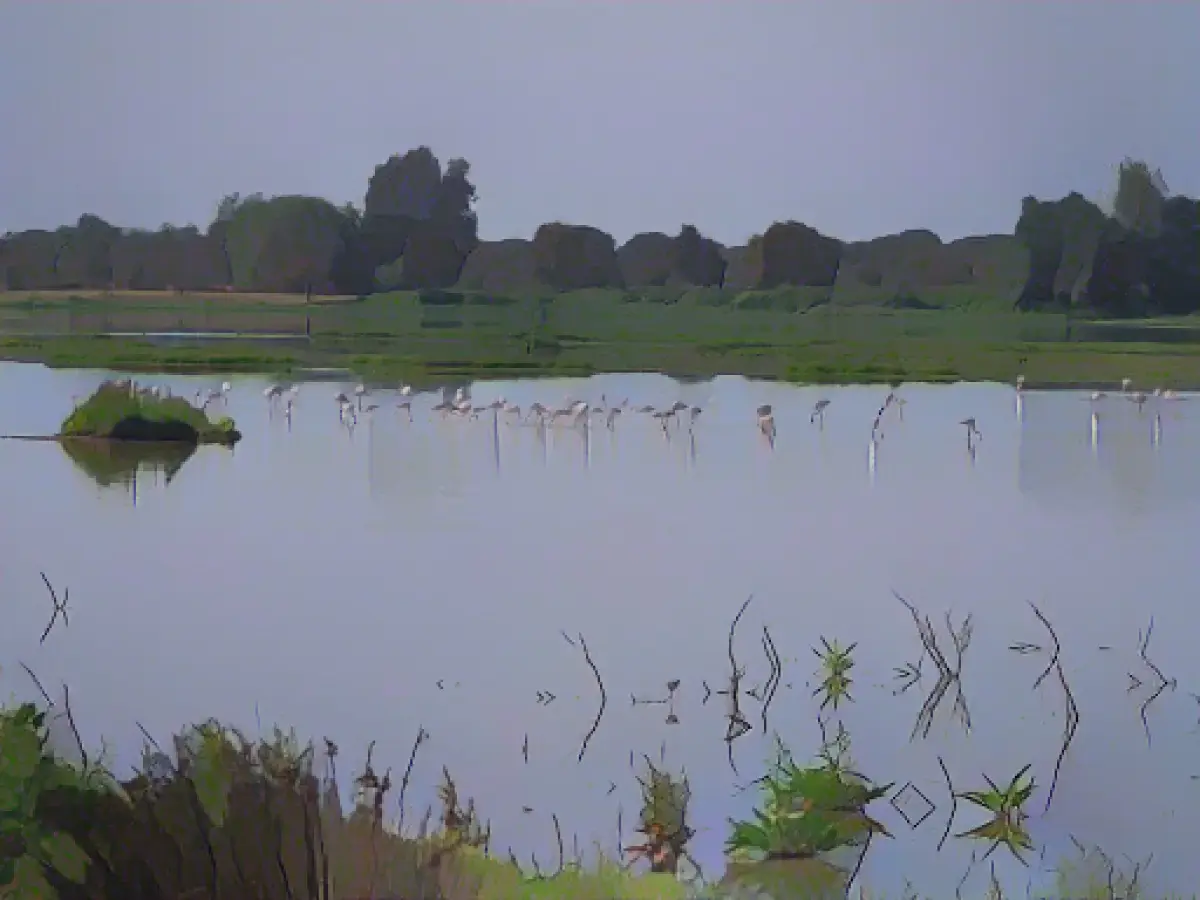1.4 billion euros for Europe's largest wetland
Spain's central government and the regional government of Andalusia have settled their dispute over the conservation of the Doñana nature reserve. The state now wants to invest 1.4 billion euros in the region of the wetland, which is a Unesco World Heritage Site and was in danger of drying out due to high groundwater extraction, particularly for strawberry fields. The money is to be spent on the decommissioning and subsequent renaturation of cultivated areas as well as other measures to preserve the wetlands and improve the situation of farmers, as Environment Minister Teresa Ribera and regional government head Juanma Moreno announced on Monday in the town of Almonte.
A controversial bill proposed by Moreno, which was intended to legalize illegally drilled wells and arable land, has thus been shelved. Environmental protection organizations had protested against this plan and the central government and the EU Commission had threatened legal action.
Among other things, the agreement stipulates that the state will pay farmers a total of 100,000 euros over a period of five years for every hectare of previously cultivated land that is set aside. Further subsidies would be given to farmers who did not want to renaturalize land, but wanted to switch to less irrigation-intensive crops or organic farming. In addition, sewage treatment plants, canals and retention basins were to be expanded and alternative energies promoted. 32 million euros were earmarked for improving the working conditions of thousands of seasonal workers on the strawberry and blueberry plantations and promoting the Doñana brand name as a sustainable, high-quality product.
A rich fauna and flora
In the Doñana National Park, which was founded in 1969 and, together with an area protected as a nature park and a buffer zone, is about half the size of Saarland, the groundwater level has been declining for years. Legal and illegal wells, which are used to divert large quantities of water for the fruit and vegetable plantations, also contribute to this. Around a third of the strawberries produced in 2021 went to Germany, the world's largest buyer.
The wetlands on the Costa de la Luz along the River Guadalquivir are home to a unique diversity of ecosystems. It is home to a rich fauna and flora, including endangered species such as the imperial eagle, the Iberian lynx and the Moorish tortoise. There are also shifting sand dunes, endless beaches, forests, scrubland and wetlands.
- The investment of 1.4 billion euros in the Doñana region will not only benefit the preservation of the wetlands but also aid in the diversification of agriculture, potentially reducing the reliance on water-intensive crops like strawberries and promoting organic farming, which can benefit local animal species like the imperial eagle and the Iberian lynx that call the area home.
- Science plays a crucial role in this initiative, as researchers will closely monitor the impact of the conservation efforts on the environment, agriculture, and animal populations, providing essential data to inform future policies and decision-making processes.
- The renovation of sewage treatment plants, canals, and retention basins in the Doñana National Park and its surrounding areas not only aims to improve the wetland ecosystems but also benefits the local population by providing sustainable water resources, enhancing the quality of life for thousands of seasonal workers on strawberry and blueberry plantations, and promoting the region's agricultural products as sustainable and high-quality, with potential new markets for climate-conscious consumers globally.
Source: www.dpa.com






